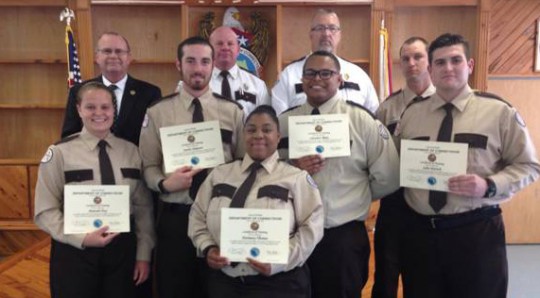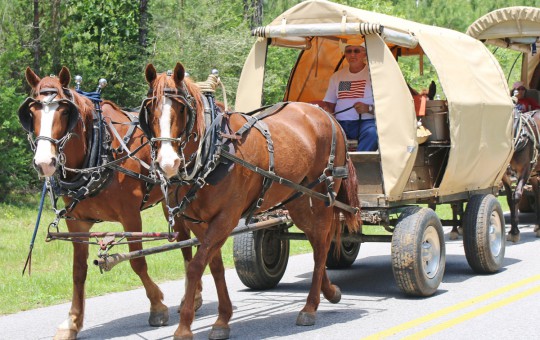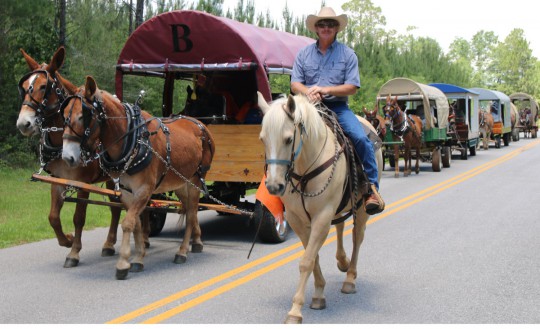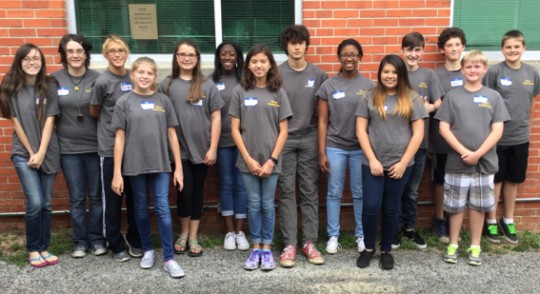New Century Correctional Institution Officer Recruits Graduate
May 6, 2016
Several new Century Correctional Institution recruits recently graduated from Basic Recruit Class. The new correctional officers are (front, L-R) Amanda Day, Justin Simpson, Harmony Thomas, Claudero Riley and John Patrick. Also pictured are (back, L-R) Warden Bryant, Major Marshall, Major DeLapp and Officer deGraaf. Photo for NorthEscambia.com, click to enlarge.
Powerball Jackpot Grows To $415 Million
May 6, 2016
The Powerball jackpot has rolled 18 times since the March 5 drawing, resulting in an estimated $415 million jackpot for Saturday night’s drawing – among the 10 largest evver. The jackpot prize cash option value is $269.7 million. Pictured: A Powerball billboard teases the $415 prize Thursday on Highway 97 at the Alabama-Florida state line south of Atmore. NorthEscambia.com photos, click to enlarge.
Supreme Court Weighs Nine Mile Popeyes Death Penalty Case
May 6, 2016
The Florida Supreme Court on Thursday heard arguments in a key case that led to an overhaul of the state’s death-penalty sentencing system and could have sweeping implications for the 390 inmates awaiting execution in Florida.
The case involves Timothy Lee Hurst, who was sentenced to death for the 1998 killing of a fast-food worker on Nine Mile Road in Pensacola.
Hurst was the plaintiff in an appeal that resulted in the U.S. Supreme Court ruling in January that Florida’s system of allowing judges — and not juries — to decide whether defendants should face death equates to an unconstitutional violation of the Sixth Amendment right to a trial by jury.
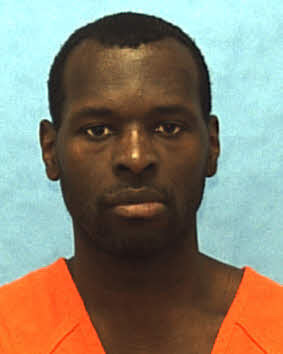 Lawmakers hurriedly overhauled the death-penalty sentencing system this winter to address the U.S. Supreme Court ruling.
Lawmakers hurriedly overhauled the death-penalty sentencing system this winter to address the U.S. Supreme Court ruling.
Since the January ruling, the Florida Supreme Court has been grappling with the impact of the decision on Death Row inmates like Hurst. Lawyers for the prisoners contend that Florida law requires the death sentences be reduced to life in prison without parole. Prosecutors argue that the court should consider the impact of the U.S. Supreme Court ruling on a case-by-case basis.
David Davis, a Leon County assistant public defender representing Hurst, argued Thursday that the new law overhauling the sentencing system should not apply to Hurst and that his client must be resentenced to life behind bars.
Echoing arguments made by a group of legal luminaries in a brief filed in Hurst’s case this week, Davis relied on a 1972 statute which provides that “in the event the death penalty in a capital felony is held to be unconstitutional by the Florida Supreme Court or the United States Supreme Court,” the court having jurisdiction over a person previously sentenced to death “shall sentence such person to life imprisonment.”
That law came in anticipation of a U.S. Supreme Court ruling in a case known as Furman v. Georgia, which resulted in a nationwide moratorium on the death penalty and led to the commutation of all death sentences in Florida to life in prison without parole.
Justice Peggy Quince noted that the decades-old law deals only with decisions regarding the death penalty itself, not the process involving sentencing.
“The Supreme Court (in the Hurst ruling) did not say that the death penalty was unconstitutional. It said the Florida procedure was unconstitutional. Isn’t that a difference?” she asked Davis.
But Davis said the law links the procedure and the penalty.
“It’s sort of like a symbiotic relationship. You can’t have one without the other. It’s sort of like having a bag full of bullets without a gun. They don’t do you any good unless you have the gun. In this case, unless you have this procedure, you don’t have the death penalty,” he said.
The 8-1 U.S. Supreme Court decision in the Hurst case dealt with the sentencing phase of death-penalty cases after defendants are found guilty, and it focused on what are known as aggravating circumstances that must be determined before defendants can be sentenced to death. A 2002 U.S. Supreme Court ruling, in a case known as Ring v. Arizona, requires that determinations of such aggravating circumstances must be made by juries, not judges.
Under Florida’s new law, juries will have to unanimously determine “the existence of at least one aggravating factor” before defendants can be eligible for death sentences. The law also requires at least 10 jurors to recommend the death penalty in order for the sentence to be imposed, and it did away with a feature of the old law that had allowed judges to override juries’ recommendations of life in prison instead of death.
Justice Barbara Pariente, who earlier this year called reliance on the 1972 law a “fallacious” argument, questioned why Hurst should not be resentenced under the new law.
Davis said that, by applying the new law retroactively, “you’ve essentially ignored” the law that requires the sentences to be reduced.
“So you think the Legislature intended to provide a gap and give all the defendants that had previously been sentenced to death a life sentence? You think that is even remotely the case?” Pariente said.
Assistant Attorney General Carine Mitz argued that the “plain language” of the 1972 law is clear.
“It doesn’t say the death penalty statute. It doesn’t say Florida’s death penalty statute. It specifically says the death penalty,” Mitz said.
The justices also focused much of Thursday’s hearing on the issue of “harmless error,” a legal term meaning that any other jury would come to the same conclusion.
Hurst was sentenced to death for the 1998 killing of fast-food worker Cynthia Harrison in Pensacola. Harrison, an assistant manager at a Popeye’s Fried Chicken restaurant where Hurst worked, was bound, gagged and stabbed more than 60 times. Her body was found in a freezer of the Nine Mile Road restaurant.
The jury in the Hurst case recommended a death sentence to the judge, but its vote was split seven to five.
Davis argued that harmless error does not apply in Hurst’s case because “there was no jury verdict” on his death sentence.
“Harmless error analysis presumes that you have a legal verdict. In this case, we don’t. It was just merely a recommendation. We don’t know what factors the jury found. … And not only that, we don’t know what weight they gave to them. So the whole harmless error idea just falls apart,” Davis told reporters after the hearing.
But Mitz said that any jury would return the same recommendation when reconsidering the circumstances of Hurst’s case.
Justice Charles Canady stepped in to support Mitz’s arguments.
“Based on the facts, isn’t there a strong case, that you’re trying to make, that any rational jury necessarily would have found those two aggravators on which the trial court relied in imposing the sentence?” he asked.
Pariente and Quince also expressed concerns about the constitutionality of Florida’s new death penalty law, at least in part because it only requires juries to decide that one aggravating factor exists for the death penalty to be imposed.
“The worst thing would be … a new statute that has constitutional infirmities that we then are applying across all these prosecutions and 10 years from now we end up with another 100, 200 people on Death Row, and no one gets to what the state wants, which is to have the worst of the worst executed,” Pariente said.
But Sen. Rob Bradley, a Fleming Island Republican who is a former prosecutor, said in a telephone interview that the state’s new law is firm.
“If one looks at the Florida Supreme Court’s treatment of death penalty cases, it’s obvious that it is a liberal court that doesn’t like the death penalty. Therefore, it’s not surprising that they will look to pick apart and find flaws in what should be obviously a constitutional statute that conforms to what the U.S. Supreme Court has done,” he said.
by Dara Kam, The News Service of Florida
Pensacola Wins Second Straight Over Biloxi
May 6, 2016
Pensacola Blue Wahoos third baseman Eric Jagielo came to the plate with the bases loaded and two outs in an 0-20 slump and hitting .146.
All Jagielo did was launch a grand slam into the right field Hill-Kelly Dodge berm to lead the Blue Wahoos to its second straight victory, 8-1, over the Biloxi Shuckers in front of 4,065 at Blue Wahoos Stadium.
 Jagielo, the Cincinnati Reds No. 14 prospect according to MLB.com, last got a hit 10 days ago on April 25 against the Jackson Generals.
Jagielo, the Cincinnati Reds No. 14 prospect according to MLB.com, last got a hit 10 days ago on April 25 against the Jackson Generals.
His four RBIs were his first since he drove in two on April 11 against the Mississippi Braves in the Blue Wahoos home opener five-game series. Jagielo now has two homers and nine RBIs this season for Pensacola.
Jagielo, who was selected in the first round by the New York Yankees in the 2013 draft, played 58 games last year at Double-A before surgery to repair his right knee. The Yankees traded him to the Reds as part of the deal in December for closer Aroldis Chapman.
Jagielo said his talk with Hall of Fame shortstop Barry Larkin before the game and hitting a bucket of balls helped him get in a groove Thursday.
“It was good to get a little time to work on my swing, especially with a guy like Barry,” he said. “It’s cool to learn stuff from guys like him and then apply it to my game.”
Pensacola leads Biloxi 2-0 in this five-gamehome stand and now is 16-11 on the season. The first-place Shuckers fell to 17-9 with Pensacola one a 1.5 game back.
Just like the night before, Biloxi scored first when right fielder Brett Phillips scored from third on a passed ball that rolled to the backstop, putting the Shuckers up, 1-0. With runners on second and third and one out, Pensacola right-hander Jackson Stephens then struck out the next two batters to get out of the inning.
Blue Wahoos Stephens worked six innings and retired the last 10 batters he faced. He gave up one run that was unearned and struck out five. He improved to 2-2 on the season with a 3.95 ERA.
In addition, Stephens also got his first professional hit in his fifth season in the minors with a grounder to left field to lead off the second inning.
“The first inning he had that little blip but he really did a nice job,” said Pensacola manager Pat Kelly.
Pensacola’s relievers Matt Magill and Wandy Peralta then held Biloxi hitless over the final three innings and struck out six batters.
Kelly was also impressed by Magill, who pitched two innings and struck out three.
“Magill looked really impressive and had really good stuff,” Kelly said. “He had a really sharp slider tonight.”
Pensacola also got production from second baseman Alex Blandino, who was 0-15 in his last four games, striking out seven times.
He also spoke with Larkin about hitting Thursday before going out and clobbering his first home run of the year a solo homer to left field. Blandino also hit a double and single in four at bats, scoring two runs and knocking in three. The two talked about getting back to basics at the plate.
“Whenever you can speak to a Hall of Famer on a daily basis, you’re bound to get better,” Blandino said. “He always has good, positive things to say.”
Along The North Escambia Trail With A Wagon Train
May 5, 2016
The scene Wednesday very well could have been a postcard snapshot of Molino in the 1800’s. Blue skies with a few puffy white clouds floating along in a gentle breeze, piney woods along the road with the melody of birds singing.
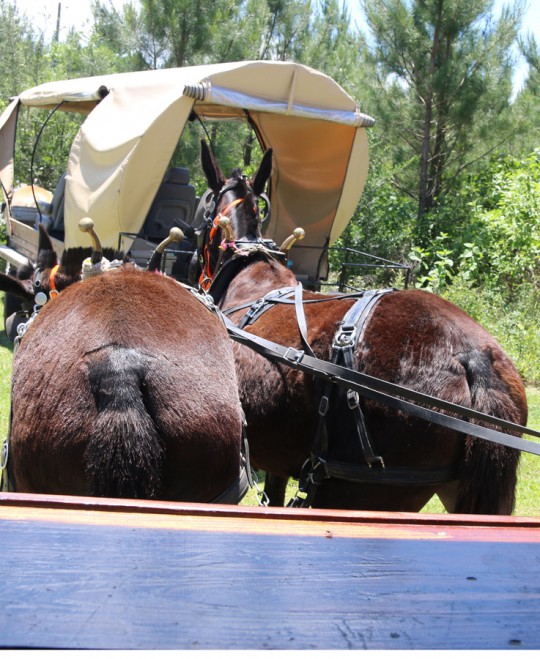 There was the sound of horseshoes — clump, clump, clump — and of chains rattling used to connect horses, mules and tack to handcrafted wagons. This was a real wagon train, over a half dozen strong with outriders for protection.
There was the sound of horseshoes — clump, clump, clump — and of chains rattling used to connect horses, mules and tack to handcrafted wagons. This was a real wagon train, over a half dozen strong with outriders for protection.
But this was May 2016. And in our modern zip-zip fast paced world, wagon trains tend to draw a bit of attention. And that is the point on the annual wagon train ride to the Tate High School FFA Rodeo. The ride started Saturday in Monroe County, AL. It ends Friday night at the Escambia County Equestrian Center in Pensacola for Tate FFA Rodeo’s Grand Parade.
It’s a nearly 25 year old tradition started by the late Selmer Thompson with a ride from Barrineau Park to Pensacola. This year is the fifth week long event.
At just two horsepower, or mule-power each, it’s slow ride with a top speed of about three or four mph that provides the opportunity to take in the surroundings. And to be neighborly, speaking and waving to the bystanders that gather along the highways or in their yards to watch the unique picture of Americana pass by.
“This is a great way to travel,” trail boss Darryl Wilson said. “There’s just nothing like it.”
Catching up with the ride Wednesday afternoon on Crabtree Church Road, our photographer was greeting by the smell of grilled ribs as the group finished up a lunch break before hitting the trail again. There were no escort vehicles, no trucks full of supplies. This was a real deal, old-timey wagon train through the countryside.
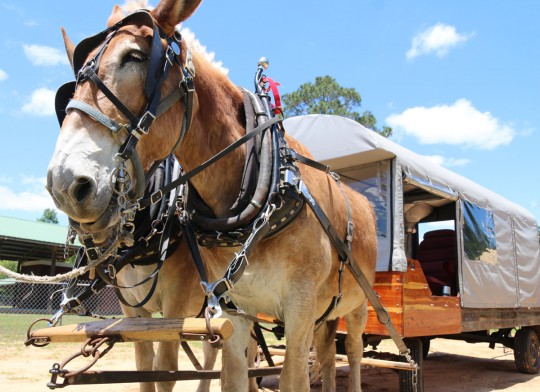 But it’s not a total step back into time — some of the wagons have battery powered lights and radios — with country music, of course. One wagon was equipped with a BBQ grill mounted at the rear. No need for a drive-thru when the ride is a self-contained, on the move BBQ house. And, along with big comfortable captain’s chairs, a couple of the wagons even had on-board bathrooms.
But it’s not a total step back into time — some of the wagons have battery powered lights and radios — with country music, of course. One wagon was equipped with a BBQ grill mounted at the rear. No need for a drive-thru when the ride is a self-contained, on the move BBQ house. And, along with big comfortable captain’s chairs, a couple of the wagons even had on-board bathrooms.
“This has been a good ride,” Wilson said. “The weather today has been perfect.”
The group spent Wednesday night camped out near the ballpark on Crabtree Church Road. On Thursday, they will travel south on Highway 99 to Barrineau Park Road and cross over Barrineau Park Road into Baldwin County where they will make camp Thursday night. Then Friday it’s on to the rodeo.
The Tate Rodeo beings at 7:30 p.m. both Friday and Saturday at the Escambia County Equestrian Center. Advance tickets are available at Farm and Nursery Mart, Hill Kelly Dodge, Farm Bureau Insurance (Nine Mile and Molino), Jimmy’s Grill, and Barnes Ace Hardware. Tickets are $8 for adults and $3 for children in advance and $10 and $5 at the gate.
For more information about the Rodeo, call (850) 937-2308.
Pictured top and bottom: A wagon train travels through Molino Wednesday afternoon. Pictured top inset: The view of the driver’s seat. Pictured bottom inset: Pulling out after lunch. NorthEscambia.com photos, click to enlarge.
Woman Critically Injured In Freak Gas Station Accident
May 5, 2016
A 25-year old female was critically injured in a freak accident Wednesday afternoon after she stopped to pump gas in Flomaton.
The woman stopped her vehicle at the Kangaroo gas station on Sidney Manning Boulevard just before 5 p.m. According to Flomaton Police Chief Bryan Davis, after she got out of the vehicle, she partial re-entered the vehicle but had one leg out of the open driver’s door. Somehow the vehicle was put into gear and “took off” in a forward direction, where the driver’s door struck a concrete curb, pushing the door closed on the woman’s leg.
She was transported by Atmore Ambulance to the helipad at the Escambia County (FL) EMS post in Century, and then flown by helicopter to a Pensacola hospital.
Her name has not been released.
NorthEscambia.com file photo.
Victoria Kelson Named Tate FFA Rodeo Queen
May 5, 2016
Victoria Kelson of Cantonment has been crowned queen of the 25th Annual Tate FFA Alumni Foundation Rodeo.
She is the daughter of Billy and Vanessa Kelson of Cantonment and Darrell and Kelly Wilson of Molino. Kelson is a sophomore at Tate High School where she is a member of FFA, BETA club and the National Honor society with a 4.08 GPA.
Kelson is in the veterinary program at Tate High and hopes to attend Auburn University to study veterinary medicine. She is also a member of Escambia county 4-H Horse Club and has participated in many community project and fundraising events, dedicating time to Special Olympics and St. Jude’s Childrens Hospital.
She has loved horses since her grandmother Carolyn McKissack bought her a pony when she was just five-years old. She credits her grandmother for introducing her to horses and other animals.
She will be riding the horse Penny Grace at the rodeo, which she purchased for just $400 and trained her to be the beautiful horse that she is today. Kelson plans to keep training her horse to be well rounded, able to jump pull and rodeo.
Kelson, an honors students, was a Tate High School cheerleader this school year and a member of the FFA Parliamentary Procedure Team.
The Tate Rodeo beings at 7:30 p.m. both Friday and Saturday at the Escambia County Equestrian Center. Advance tickets are available at Farm and Nursery Mart, Hill Kelly Dodge, Farm Bureau Insurance (Nine Mile and Molino), Jimmy’s Grill, and Barnes Ace Hardware. Tickets are $8 for adults and $3 for children in advance and $10 and $5 at the gate.
Photo by Janice Courson for NorthEscambia.com, click to enlarge.
Florida GOP Tries To Come To Terms With Trump
May 5, 2016
As Donald Trump essentially locked up the Republican presidential nomination late Tuesday, Florida GOP leaders began facing a decision none of them expected to be making a year ago: Line up behind the real-estate mogul’s White House bid, or figure out how to win around him in the fall.
U.S. Sen. Ted Cruz of Texas, the last Republican given much of a chance of beating Trump at the Republican National Convention this summer, dropped out of the race Tuesday night after a crushing loss in Indiana. Ohio Gov. John Kasich, who lagged far behind, followed suit Wednesday morning — clearing the field for Trump.
Shortly after Trump’s victory Tuesday, Republican Party of Florida Chairman Blaise Ingoglia issued a statement calling on the party to get over a contentious primary that once included U.S. Sen. Marco Rubio of Florida and former Florida Gov. Jeb Bush.
“Now, we must all come together as a party and complete the task at hand, which is defeating Hillary Clinton in November,” Ingoglia said. “A Clinton presidency would be disastrous for this country, our military, our debt, our freedoms and the Supreme Court.”
Joe Gruters, co-chairman of Trump’s campaign in Florida, said Wednesday the party has already started to gel behind the billionaire developer, who will now lead the GOP’s quest to put together 270 electoral votes in the general election. Florida is likely to be crucial to that effort. If Clinton, the likely Democratic nominee, simply wins the states that have voted for her party in every election dating back to 1992, a victory in Florida would put her in the White House.
“People will come together,” Gruters said. “It’s always difficult after an election to see your guy go down.”
Gov. Rick Scott long ago said the GOP should back Trump, and some candidates running for other offices began calling for party unity on Wednesday. Carlos Beruff, a U.S. Senate candidate whose outspoken style has drawn comparisons to Trump, called on his fellow Republicans to back the nominee.
Like many trying to rally the party around Trump — whose slashing attacks on presidential rivals helped spark a particularly contentious race — Beruff zeroed in on the possibility of a third straight presidential win for Democrats after President Barack Obama’s victories in 2008 and 2012.
“Beating Hillary Clinton in November should be the first goal of all Republicans,” Beruff said. “Donald Trump is the nominee of our party, and I am committed to voting for him and supporting him so that we can take our country back from the liberal policies of Obama and Clinton.”
But other Republicans were balking at the possibility. Members of the #NeverTrump movement that sprung up on social media in response to Trump’s growing popularity insisted that “never means never” — and that they would not vote for Trump in November.
“I expect enough Republicans of conscience and principle will not vote for Donald Trump that it’s going to make it very difficult to win the presidency,” said Rick Wilson, a Republican strategist in Florida who has been a leading voice against Trump.
Wilson said he also expected some Republicans, especially in swing districts, to be hesitant about lining up behind Trump. While some Democrats are already cautioning that Trump could have hidden strengths in a general election, the nominee still polls poorly among women and Hispanic voters.
“You’re not latching onto a campaign that has coattails in a possible direction for most candidates. … There will not be the rally effect that you normally get with a presidential candidate,” Wilson said.
Democrats were already seeking to capitalize on the dynamic of Trump at the top of the ticket. Congressional candidates sent out emails Wednesday trying to fundraise off the GOP front-runner, or get in some shots.
Congressman Patrick Murphy, one of two Democrats running for Florida’s open U.S. Senate seat, raised the possibility in a fund-raising letter of a Republican-controlled Senate confirming a Trump Supreme Court nominee. And the Democratic Congressional Campaign Committee tried to tie a slew of Republican candidates running for Murphy’s U.S. House seat to the GOP presidential candidate.
“Inflammatory rhetoric cost Republicans in 2012, now with Trump at the top of the ticket, Brian Mast, Rebecca Negron, and the host of Republican candidates won’t be able to escape their divisive leader who has offended women, minorities and veterans across the Treasure Coast,” said Jermaine House of the DCCC.
State Rep. Dennis Baxley, an Ocala Republican running for the Florida Senate in a strongly Republican district, said he thought much of the anger behind the #NeverTrump movement would begin to cool with time.
“I do think people have to look at the big picture, too, and realize that governing is a crucible that will temper anyone’s posture,” he said.
Baxley also said candidates down the ballot might try to learn things from Trump’s unorthodox campaign, whether joining him in touting the fact that they’re investing in their own campaigns or shying away from referring to “endorsements” by that name.
And at least one prominent Democratic strategist noted parallels to a Florida election in 2010, when an outsider businessman clashed with the Republican Party establishment before winning the top spot on the ticket: Gov. Rick Scott.
“He rightly gambled that #NeverScott would go away after the primary, and the establishment would quickly come together,” strategist Steve Schale wrote in an open letter to fellow Democrats.
by Brandon Larrabee, The News Service of Florida
Ransom Middle Academic Teams Heading To Nationals
May 5, 2016
Ransom Middle School’s Academic Team will compete in the National Academic Quiz Tournaments(NAQT) Middle School National Championship Tournament this weekend in Atlanta.
 Ransom team members headed to nationals are Braden Boutwell, Maggie Brown, Ravyn Brown, Chris Espy, Natalie Holt, and Elizabeth McConnell. Alternates: Katie-Rose Haley, Emmalei Miller, and Lili Rollin, along with coaches Clarissa Brown and Lucinda Bateman.
Ransom team members headed to nationals are Braden Boutwell, Maggie Brown, Ravyn Brown, Chris Espy, Natalie Holt, and Elizabeth McConnell. Alternates: Katie-Rose Haley, Emmalei Miller, and Lili Rollin, along with coaches Clarissa Brown and Lucinda Bateman.
To qualify for the trip to nationals, Ransom teams competed twice in April. In the first tournament in Valparaiso, Team A — Maggie Brown , Braden Boutwell, Chris Espy and Elizabeth McConnell — won five matches, while Team B — Natalie Holt, Lili Rollins, Victoria Long — won two. Brown, Boutwell and Hold were the top three players out of 72 total.
At their second tournament last month, held at Pensacola High School, Ransom participants were:
- Team A: Maggie Brown, Braden Boutwell, Chris Espy and Kendal Russell
- Team B: Ravyn Brown, Lili Rollins and Emmalei Miller
- Team C: Katie-Rose Haley, Carter Pitts, Tristan Espy and Abby Gryskiewicz
- Team D: Taji Williams , Victoria Long and Owen Painter
Team members winning individual awards were Brown in fine arts, Espy in language arts and Haley in both math and fine arts.
Pictured top: (L-R) Victoria Long, Chris Espy, Natalie Holt, Lili Rollins, Elizabeth McConnell, Braden Boutwell, Maggie Brown. Pictured inset: Individual first place medals were earned by Maggie Brown in fine arts and Chris Epsy in language arts. Pictured below: (L-R) Lili Rollins, Kendal Russell, Abby Gryskiewicz, Emmalei Miller, Katie-Rose Haley, Taji Williams, Maggie Brown, Chris Espy, Ravyn Brown, Victoria Long, Braden Boutwell, Tristan Espy, Carter Pitts and Owen Painter. Photos for NorthEscambia.com, click to enlarge.
State Examines Services For Foster Kids In Trouble With The Law
May 5, 2016
Thousands of youths in Florida’s child-welfare system have gotten in trouble with the law — and when they do, their caregivers often refuse to take them back.
Now policymakers are trying to improve services to the teens, saying those children had already been abused or neglected when they began acting out in foster care. A work group of the Florida Children and Youth Cabinet has been developing policy recommendations for so-called “crossover youth,” and a meeting on the subject is expected to take place in June.
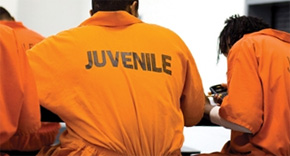 The policymakers say these young people are among the most challenging in any state system — and the most at risk to spend their lives behind bars or on public assistance.
The policymakers say these young people are among the most challenging in any state system — and the most at risk to spend their lives behind bars or on public assistance.
“We’ve got to get past the rhetoric and sit down and figure out what’s best for these youths, because if we don’t get it right, they’re going to be in our adult prison system when they’re 20 years old,” said Mark Jones, chief executive officer of the Community Partnership for Children, the private agency in charge of placing foster children in Volusia, Flagler and Putnam counties.
According to the Florida Department of Juvenile Justice, 3.4 percent of the 42,211 youths arrested during fiscal year 2014-15 were living with foster families, other caregivers or in group homes at the time of their offense. That’s 1,428 kids, who averaged 2.4 arrests apiece over 12 months.
“The population isn’t great (in size),” DJJ Secretary Christy Daly said. “It’s just that this population is very, very high-need — and very challenging.”
Many caregivers simply can’t cope with troubled teens after a certain point, said Christina Spudeas, executive director of the advocacy group Florida’s Children First.
“I’ve seen them tell the judge, ‘I’ve got six other kids. I can’t keep missing work. I’m going to lose my job, I’m going to lose my home — because of him,’ ” Spudeas said. “Then they call (the Department of Children and Families).”
Fed-up foster parents may refuse to care for the youth any longer. Sometimes the caregiver is willing to retrieve the youth following an arrest, but the judge has imposed a no-contact order due to the youth’s previous battery of the caregiver.
These teens are known as “lockouts.” A second category of crossover youth has no caregiver available due to a death, hospitalization or incarceration.
According to the Department of Children and Families, 14 of Florida’s 17 community-based care lead agencies — which handle foster-care placements — spent $7.7 million on services for 610 crossover kids between July 2014 and March 2015. Of the youth who were identified, 326 were lockouts and 284 had no caregiver available.
What’s more, advocates say, teens who have been arrested face harsher penalties without an adult to support them in court.
“The data shows that children who are accompanied by a parent or caring adult get a lesser sentence and the least-restrictive consequences,” Spudeas said.
Child-welfare professionals say that the kids are challenging because they’ve been traumatized. But it’s unclear how the state can improve its services to them, given the complexities of a system that crosses state agencies — and not just DCF and DJJ.
“The root of the issue for a lot of these kids is behavioral health,” DCF Secretary Mike Carroll said. “A lot of times, we’re not dealing with these kids until they have to come into residential care. … We need to be doing more upstream, so these kids and these families don’t get to that point.”
That means early identification and the coordination of services at the local level. Jones said it could also mean an enhanced placement, such as a specially-trained foster family or a houseparent-style group home with specialized intervention services.
State Rep. Gayle Harrell, the Stuart Republican who chairs the House Children, Families and Seniors Subcommittee, said placement is crucial in such situations.
“Going back into the foster-care system is very problematic because you can’t find a foster family that’s capable of handling them or will handle them,” Harrell said. “And most of them wind up in group homes. And you need to make sure that you have the right type of group home for them.”
What’s more, said Florida Children and Youth Cabinet Chairwoman Wansley Walters, the funding for such services isn’t always available.
“One of the main impediments, when you have kids going between systems, is that it starts breaking down on who pays for what,” said Walters, a former DJJ secretary. “We need the money to follow the child. But we’re not structured to have the money follow the child. And it gets very complex when you’ve got a kid being served in both systems.”
by Margie Menzel, The News Service of Florida


